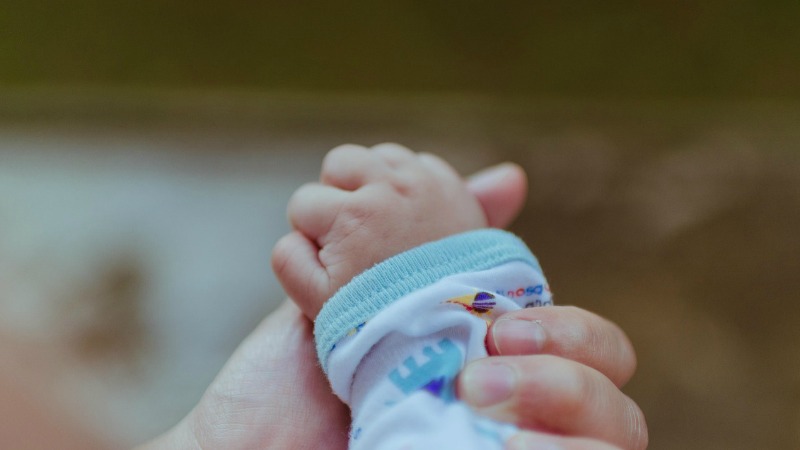As I reflect today on the death of the writer/pastor Eugene Peterson, I can’t help but think about many of the things he taught me. One of the most important, though, was a lesson in anatomy, on the difference between the skeleton of a beetle and a kitten. Believe it or not, that lesson has proven to be one of the most important for my life.
For years, I had written and spoken about the importance of bones in the Bible—from Joseph’s brothers promising to carry his bones from Egypt into the Land of Promise to the fulfilled prophecy that not one of Jesus’ bones would be broken. I had never thought through, though, just how different human bones are from that of some of other of God’s creatures—and why.
In his 2017 collection of sermons, When Kingfishers Catch Fire, Peterson recounted what he had learned about endoskeletons and exoskeletons. “In the early stages of development, creatures with exoskeletons (that is, skeletons on the outside, like crabs and beetles) have all the advantages, as they are protected from disaster,” Peterson wrote. This advantage ends, though, because though the creatures molt into different forms, “there is no development because there is no memory.”
“Creature with endoskeletons (that is, skeletons on the inside, like kittens and humans) are much more disadvantaged at first, being highly vulnerable to outside danger” he wrote. “But if they survive through the tender care and protection of others, they can develop higher forms of consciousness.”
Therein, Peterson noted, lies a parable. “The man who asked the question of Jesus had lived his life with an exoskeleton,” he wrote. “His material goods and moral achievements were all on the outside like a crust, and they separated him from both his neighbor and his God.” The change he needed for eternal life was one that he resisted because it would leave him vulnerable, feeling exposed before the world.
I can relate to that. It seems that one of the primary spiritual obstacles for me is to abandon an exoskeleton of self-protection, to trust the one who counts all my bones and sees to it that however much I may suffer, I will not be finally broken. I also find myself often seeking refuge in a kind of steely Stoic resignation, rather than in the kind of Christ-life that can be hurt, that can weep. This is, of course, the only kind of life that can truly love and be loved.
This means learning to be served by others. In another book, Peterson writes about a time when he came close to ministry burnout. He told his church elders that he had no time for study, no time for prayer, no time for close personal relationships. Again, I can relate. His elders decided, when they learned that a primary trouble for him was the endless blur of administrative meetings, that except for the monthly session meeting, the pastor would not attend any more meetings.
This seemed like a Godsend, until one Tuesday night, when Peterson was restless, and, knowing there was an elders’ meeting going on, meandered over to the church, and sat in the back of the room. One of the elders stopped and asked him what he was doing there. Peterson replied that he was free and wanted to be present to offer moral support. The elder said, “What’s the matter? Don’t you trust us?”
Peterson reflected: “Defensive phrases assembled themselves in my mind, but I never spoke them. The abrupt challenge was accurate and found its target. ‘I guess I don’t,’ I said. ‘But I’ll try.’ And I left. I haven’t been back.”
The issue was a matter of exoskeletons versus endoskeletons. The hard shell of self-protection would rather not need others. We don’t wish to be in their debt. We trust our own activity, our own sense of control, more than the vulnerability that comes with being ministered to by others. And yet, only the crucifiable self is, ultimately, glorifiable.
The shell of protection—of our own doing and being and winning and displaying—can convince us that we don’t need others, or even, though we won’t admit it, that we don’t need God. But, deep within, we know that structure we build on the outside is protecting us only from what we need the most: the love of God, the communion of saints, the carrying of the cross. We are, in the end, protecting ourselves from blessing.
This kind of blessing is what Peterson meant when he spoke of the Beatitudes, words for which familiarity often becomes our exoskeleton, protecting us from how shocking they really are. Peterson wrote that readers should consider that nobody in the ancient world actually expected to be happy. Tragedy was the defining feature of life. If one was happy, one wished to hide that fact, for fear that the gods would punish one for acting like one of them. Into that kind of world, Jesus brought the idea of blessing—an idea at odds with both ancient tragedy and with the modern quest for emotional entitlement. The blessing is one that comes by the way of the cross, not by the way of self-protection.
The life of Christ, though, is one in which we follow him, to the Place of the Skull. We suffer with him. We are humiliated with him. But we are not alone. Our God is with us. The people we love, if we have eyes to see, are there, helping to carry our crosses when we fall, waiting to anoint us with spices when we die. But even in suffering, when our last protections fall, God’s purposes bend toward joy. We have no force field of protection. But we can count all our bones. Our skeletons are on the inside. Our skeletons will not save us. But, by the good grace and providence of God, our skeletons are safe.








